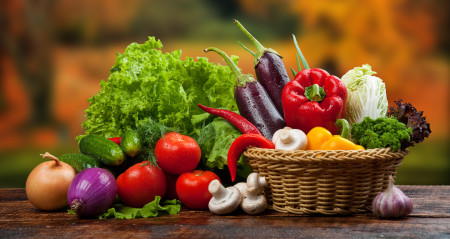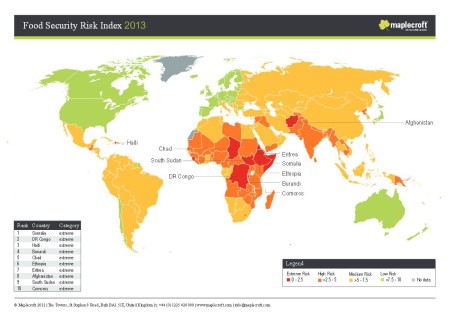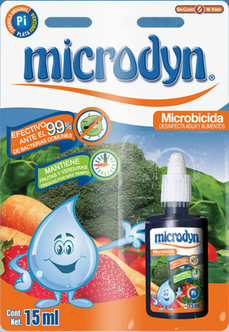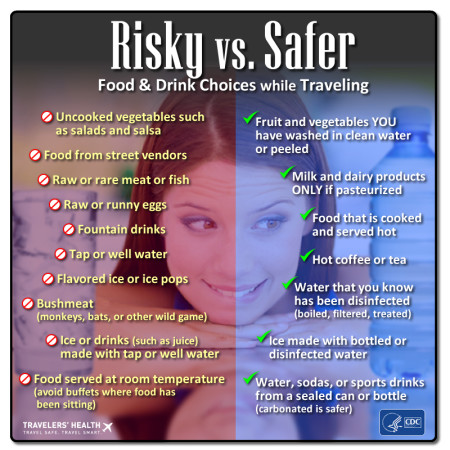I was having a surprisingly pleasant evening with two fellow “import” friends. Christina is from the Basque Country in Spain and gives Mexico a brave second try for her Mexican lover. Andrés was born in Rosario, Argentina, and has a propound passion for food and wine. The latter also has a talent for turning casual week-day evenings into exquisite cheese and (mainly) wine tastings.
In between small talk and personal conversations, we talked about the difficulties of cooking abroad. The food and water insecurity, new ways of grocery shopping and learning to cook and bake from-scratch. I named them the three “Food & Cook Challenges” you may face overseas:
1# Food & Water Insecurity
2# New Ways of Grocery Shopping
3# From-Scratch Cooking & Baking
Today we have a closer look at number 1: Food & Water Insecurity. Soon I will discuss the reamining two challenges.
1# Food & Water Insecurity
The lack of food & water security in the world is a macro problem you won´t be able to do much about. However, when moving to a country with a higher food risk you have the responsibility to protect yourself from bacteria, viruses and parasites that may affect your health.
After food poisoning twice in a row for the both of us and diarrhea on a regular basis for unclear reasons, we were forced to take care of ourselves more carefully.
Of course, you want to try local foods and you should, but be smart about it!
Are You Moving to a High-Risk Area?
Know where you go and find out if you´re moving to a high-risk area. In general worldwide food & water risk levels are divided into three levels of risk:
High Risk:
Most developing countries in Latin America, the Middle East, Africa and Asia
Intermediate Risk:
Some Caribbean islands, Eastern Europe, South Africa, Argentina and Chile
Low Risk:
United States, Canada, Northern and Western Europe, New Zealand, Australia and some Caribbean islands
The Food Security Index of Maplecroft indicates the exact degree of food security per country:
Did You Take These Health Safety Precautions?
You can reduce your risk by sticking to safe food and water habits. Find out which safety precautions to take before and during your stay abroad. These are the most important precautions that helped us developing a stable health situation:
- Vaccinations: Prior to departure it´s best to go see a doctor familiar with travel medicine, ideally at least 4-6 weeks before you leave. He/she will provide you with the right vaccinations, medicines, and information on safety in your new living area.
- Health insurance: Not all countries make it compulsory to have health insurance, but get one anyway. Even with the best precautions there may slip in a bacteria or virus. Learning where to find reliable medical care should be among your priorities. Find help if the language barrier makes it difficult to decide. And carry your health insurance card always with you, because you never know when you are going to need it.
- Doctor at hand: Find a doctor at your destination to consult. Usually you don´t look for a doctor until you get sick, but know at least whom to ask (the health insurance company for instance) and which number to call in case of emergency.
- Medicine document: Familiarize yourself with local medicine. Ask friends and colleagues which brands they use for smaller health issues such as headaches, cough, sneezes, etc. Write down that information and add whatever the doctors prescripe. We have a Google Doc file with all the medicine we have once tried here including personal experience, side effects, prescription needed or not, price, where to buy, etc.
- Health Kit: Create a health kit with some basic medicine. Eventually the mini travel medicine kit you may brought along will run out or expire. Depending on your personal complaints make sure to have the basics at home, just for your own convenience.
- Health vocabulary: In case you get sick you need to be able to communicate with doctors and/or nurses. Explaining health problems and understanding diagnoses aren´t the type of communication skills that are taught in the first couple of languages lessons. You may want to study independently vocabulary of the inner and outer body parts to prepare yourself linguistically as good as you can before you go see a doctor.
- Emergencies: Hopefully you will never need it, but in case of emergency it´s convenient to have a confidant who will be safeguarding you. Ask a colleague, friend or neighbour, someone who speaks the local language well (very important!) to be your person in need. Safe that persons number as first in your mobile phone list AND with the name “Emergency” – just in case.
- Water disinfection: We noticed that unclean fruits and vegetables are a big threat for us. Washing fruits and vegetables with disinfected water before using them turned out to be essential. To safe time I sometimes disinfect all the foods when I just bought them before storing. If you want to read more about this topic, I came across this excellent post on cleaning and disinfecting food in Mexico.
- Tap water use: Unclean water can also make you sick if you swallow or inhale it while bathing, showering, or swimming. We never had this problem in Mexico, but when living in higher-risk regions try not to get any water in your nose or mouth. In some areas, tap water may not even be safe for brushing your teeth, and you should use bottled water.
- Purification: Depending on the food hygiene in your new home country it may be neccesary to treat infestations by all kinds of worms by taking wormkiller-medicine Vermox or Mebendazole. You´ll be surprised how many worms can slip in without noticing directly. We take this aprox. twice a year whenever darms and stomach start to irritate a little.
Useful Sources for Food & Drink Safety Overseas
For country specific precautions I leave you this incredibly useful link*. The Center for Disease Control and Prevention offers health information per country. Under “For travelers” pick your country and check “Extended Stay/Study Abroad”. You´ll find lots of useful information. http://wwwnc.cdc.gov/travel/
*This source was originally written for Americans.
More tips for food and beverage safety designed for travelers:
What´s Safer & What´s Not for the International Traveler
Guide on Safe Food for Travellers
Travelling Overseas Food Safety
I´d like to emphasize that the above mentioned list of precautions is what works for us while living in Guadalajara, Mexico. Depending on the level of food insecurity in your new living area, you may need to add more or different precautions.
Do you have specific health tips for your region? Feel free to share them with us in the section below and help others to stay safe and sane while living abroad.






